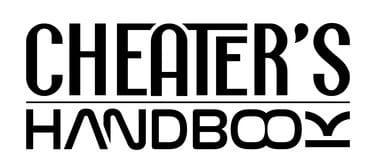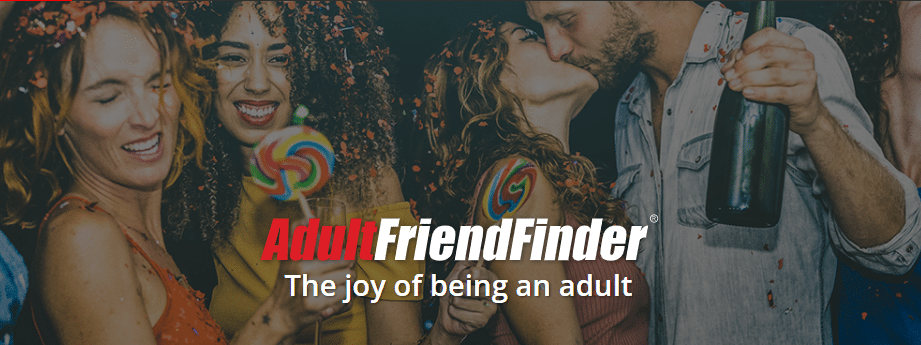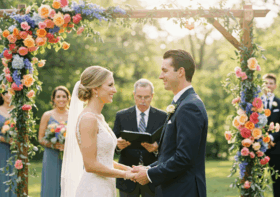Hookups vs Dating | Understanding the Difference

Navigating the world of relationships can be complex, particularly when it comes to understanding the nuances between hooking up and dating.
While both involve connecting with another individual, they serve distinct purposes and come with unique expectations and emotional stakes.
In this article, I will explore what hooking up and dating truly mean, highlight their key differences and similarities, and assist you in determining which path aligns best with your personal values and relationship goals.
What is Hooking Up?
Hooking up refers to engaging in casual sexual encounters or physical intimacy without the intention of forming a committed romantic relationship. In today’s dating culture, I have observed that hookups often prioritize physical attraction and brief encounters over emotional connection, reflecting a range of lifestyle choices and preferences among singles.
This phenomenon is particularly prevalent in various dating scenarios, especially with the rise of dating and hookup apps designed for individuals seeking short-term relationships. To fully understand the dynamics of hooking up, it is essential to explore the social norms and dating terminology that are unique to this type of relationship.
What is Dating?
Dating involves a diverse array of social interactions designed to foster romantic relationships, typically marked by emotional connections, shared interests, and a commitment that surpasses casual engagements.
In today’s dating landscape, I navigate various scenarios—from traditional dating to online platforms—each influenced by my personal values and relationship objectives.
This process not only has the potential to cultivate deep emotional connections but also requires me to explore compatibility while considering the social norms and expectations that accompany relationships.
What Are the Main Differences Between Hookups and Dating?
Understanding the differences between hookups and dating is essential for navigating the complex landscape of modern relationships. Hookups prioritize immediate physical attraction and often lack emotional connection or commitment, while dating typically involves a more profound exploration of relationship dynamics and intentions.
Each approach comes with its own set of expectations, which significantly influences how individuals communicate their desires and boundaries. By recognizing these distinctions, I can make informed decisions regarding my dating experiences and relationship goals.
1. Purpose
The primary purpose of hookups is often to fulfill immediate physical desires without the expectations of emotional connection or long-term commitment, while dating typically aims to establish deeper romantic relationships that may lead to lasting commitments.
This divergence in intent significantly influences how I approach my interactions and choices. When engaging in casual encounters, I tend to prioritize spontaneity and physical attraction, often seeking the thrill without emotional entanglement. In contrast, when pursuing dating, I am usually more invested in understanding compatibility, nurturing emotional bonds, and envisioning a future together.
These differing motives greatly affect my behaviors, from how I communicate my needs to the level of vulnerability I am willing to display.
Understanding these distinctions underscores the importance of motivations in shaping personal experiences within the realm of relationships.
2. Expectations
I find that expectations in hookups tend to be relatively low, with individuals often seeking casual encounters and minimal emotional involvement. In contrast, dating usually carries higher expectations regarding commitment, emotional availability, and the dynamics of the relationship.
This difference often stems from varying objectives; one party may simply want to enjoy a fun night without any strings attached, while the other might view these encounters as a potential pathway to something more meaningful.
Many people mistakenly believe that clarity and understanding are unnecessary in hookups, which can lead to unexpected feelings or misunderstandings. Thus, establishing clear communication about personal boundaries and desires is crucial in both situations.
Trust is a fundamental component in dating, but it should not be overlooked in casual encounters either. Mutual respect and understanding can significantly enhance the experience for everyone involved.
3. Emotional Connection
I observe that emotional connection in hookups tends to be minimal, as individuals often prioritize physical intimacy over cultivating a deeper bond. In contrast, dating typically encourages emotional connections that evolve through various stages of the relationship.
In today’s dating culture, many engage in casual encounters, often experiencing brief moments of attraction without exploring the emotional depths that characterize meaningful partnerships. This sharp contrast emphasizes how traditional dating scenarios allow shared experiences and vulnerability to foster deeper connections.
As individuals progress through the stages of a relationship—ranging from initial attraction to profound intimacy—they gradually build trust and understanding. This development is essential, as it paves the way for the closeness associated with long-term relationships, where emotional ties enhance companionship and support genuine commitments.
4. Time Commitment
In terms of time commitment, I find that hookups typically require minimal investment, allowing for short-term relationships with little to no follow-up. In contrast, dating generally demands a greater time commitment to build trust and emotional intimacy.
This distinction underscores the significant differences in relationship satisfaction and personal development between the two. While casual encounters may offer immediate gratification, they often lack the depth that longer, more committed relationships can cultivate.
For individuals seeking fulfilling connections, investing time and effort into dating can lead to stronger emotional bonds and personal growth. On the other hand, those who favor the spontaneity of hookups might overlook the valuable lessons and experiences gained from nurturing a relationship over time.
Ultimately, the choice between these two paths can profoundly influence not only one’s current emotional landscape but also future relationship dynamics.
5. Communication
Communication styles vary significantly between hookups and dating; hookups often involve direct and casual dialogue, whereas dating requires more in-depth discussions about consent, expectations, and relationship dynamics.
In casual encounters, the brevity of interaction can foster a sense of freedom and spontaneity, but it may also lead to misunderstandings if one party misinterprets intentions. Conversely, the dating scenario relies on a foundation of trust and openness, necessitating that both individuals articulate their feelings and desires clearly.
Effective dialogue in this context is crucial for navigating potential challenges, such as conflicting interests or differing levels of commitment. By prioritizing transparency and adhering to good dating etiquette, individuals can cultivate stronger relationships that are resilient to misunderstandings, transforming potentially awkward situations into opportunities for growth and connection.
What Are the Similarities Between Hookups and Dating?
Despite the differences between hookups and dating, I recognize that they share notable similarities, particularly regarding physical intimacy and the opportunity to explore emotional connections with potential partners.
Both experiences can offer valuable insights into personal preferences and relationship dynamics, contributing significantly to one’s understanding of dating as a whole.
1. Physical Intimacy
Physical intimacy serves as a foundational aspect of both hookups and dating, functioning as a means to evaluate sexual compatibility and attraction, regardless of the intended depth of the relationship.
In the realm of casual encounters, such connections can provide immediate gratification while leaving emotional boundaries somewhat unclear. Conversely, for those engaged in traditional dating, physical touch can ignite passion and foster a deeper emotional bond, ultimately enhancing the overall dynamics of the relationship.
This contrast underscores how physical intimacy, irrespective of the relationship type, can reveal underlying desires and comfort levels. Navigating these nuances is essential, as a clear understanding of the role of affection can significantly influence how both parties engage and evolve within their respective experiences.
2. Getting to Know Someone
Both hookups and dating present valuable opportunities for me to meet new people, explore mutual interests, and develop emotional connections that can range from fleeting to profound.
In navigating these diverse interactions, I often find myself balancing emotional availability with personal boundaries, both of which are crucial in shaping my experiences. Hookups tend to allow for a more casual engagement, often prioritizing physical attraction and chemistry, while dating encourages a deeper exploration of compatibility and shared values.
As I embark on these journeys, I recognize the importance of clearly communicating my boundaries and being emotionally open. This practice ultimately enriches my understanding of what I need from my relationships and enhances my ability to interact with others in a meaningful way.
Is Hooking Up the Same as Friends with Benefits?
I recognize that hooking up is often conflated with being friends with benefits; however, the two concepts have distinct differences regarding emotional involvement and established boundaries.
While friends with benefits may share a deeper emotional connection, hookups generally lack such commitments. Understanding these nuances is essential in navigating relationships effectively.
1. Definition
I define a “friends with benefits” arrangement as a casual relationship where both parties engage in physical intimacy while also maintaining a friendship. This type of relationship is often characterized by a deeper emotional connection than typical hookups.
Unlike casual hookups, which tend to lack emotional depth and can feel more impersonal, friends with benefits usually involve a bond that has developed beyond mere physical attraction. In this dynamic, individuals often share personal thoughts, experiences, and even provide support during life’s challenges, effectively blurring the lines between friendship and romance.
The emotional connections in a friends with benefits arrangement create a unique atmosphere where both parties feel comfortable exploring their desires without the pressure of a traditional relationship.
Effective communication is essential in this context, as the nuances of their relationship dynamics can shift over time. It is crucial to navigate feelings honestly to avoid any misunderstandings.
2. Boundaries
Establishing boundaries is essential in friends with benefits arrangements, as it clarifies expectations regarding emotional involvement and physical intimacy—elements that may not be as critical in casual hookups.
In these relationships, clear communication about each person’s desires is key to preventing misunderstandings and hurt feelings. Unlike a casual hookup, which often prioritizes physical pleasure, a friends with benefits setup requires a more nuanced approach to navigate the complexities of friendship alongside desire.
Boundaries might involve discussing how frequently to meet, whether to engage in exclusive activities, or what steps to take if one individual begins to develop romantic feelings. By openly addressing these factors, both parties can enjoy their connection while minimizing the potential for emotional turmoil.
3. Emotional Involvement
Emotional involvement in friends with benefits arrangements can often surpass that of typical hookups, as both parties may establish a deeper connection and engage in more intimate exchanges. This dynamic frequently blurs the lines between casual and committed relationships, creating an environment where feelings can develop organically.
Unlike fleeting hookups, which often emphasize emotional detachment, this arrangement fosters shared experiences and mutual understanding, potentially leading to unexpected attachment. Individuals in friends with benefits scenarios may navigate not only physical attraction but also elements of companionship, resulting in a complex interplay of emotions.
As they explore their chemistry, the potential for conflict can arise, particularly when one person begins to desire more than just a physical relationship, underscoring the delicate balance required in these connections.
Which is Better: Hooking Up or Dating?
Determining whether hooking up or dating is more suitable depends on my individual relationship goals and expectations. Both options come with their unique advantages and disadvantages, which cater to different preferences and emotional needs.
1. Pros and Cons of Hooking Up
The advantages of engaging in casual relationships include the freedom to connect without significant emotional investment, while the drawbacks may involve potential misunderstandings and limited emotional intimacy.
For many, the appeal of a no-strings-attached encounter provides an exhilarating departure from traditional dating norms, allowing for exploration and excitement without the pressures associated with commitment. However, this transient nature can lead to intricate emotional situations, where one individual may seek a deeper connection while the other prefers to maintain a lighthearted approach.
Striking a balance between enjoying the spontaneity of these arrangements and managing the risks of emotional turmoil is essential. In such situations, feelings can escalate rapidly, blurring boundaries and complicating relationship dynamics as both partners navigate their own expectations and desires.
2. Pros and Cons of Dating
Dating provides the opportunity to cultivate deeper emotional connections and meet relationship expectations, but it also presents the challenge of navigating commitment and the potential for emotional vulnerability.
As I explore romantic interests, I’ve found that meaningful conversations and shared experiences significantly enhance these emotional bonds. However, this journey is not without its hurdles; the complexities of emotional intelligence play a crucial role in how partners communicate and resolve conflicts.
Understanding myself and others becomes imperative, as misalignments in expectations can lead to misunderstandings or disappointment. Balancing the joys of a new romance with the anxieties of potential heartbreak requires both courage and empathy, making dating a compelling yet challenging aspect of human relationships.
Hookups vs Dating: How to Decide What’s Right for You?
Determining whether to pursue a hookup or a dating relationship requires careful consideration of my personal values, relationship goals, and emotional readiness for the various types of connections involved.
1. Consider Your Personal Values
Reflecting on my personal values is crucial when determining whether to pursue hooking up or dating, as it guides my relationship preferences and compatibility with potential partners.
Understanding what truly matters to me—be it commitment, emotional connection, or a desire for independence—significantly shapes my choices. For example, if I prioritize trust and loyalty, I may naturally gravitate towards a serious dating situation. Conversely, if I value adventure and spontaneity, I might find myself more aligned with casual encounters.
This self-awareness not only helps me make informed decisions but also ensures that the relationships I pursue resonate with my intrinsic beliefs. Evaluating my core principles ultimately leads to deeper satisfaction and harmonious interactions, regardless of the path I choose.
2. Communicate with Your Partner
I find that open communication with my partner is essential for understanding our relationship goals, whether we are leaning toward a casual hookup or considering a more serious dating scenario.
Establishing a dialogue not only clarifies our intentions but also fosters a sense of trust and security between us. It is crucial for me to articulate my feelings and expectations openly, as this forms the foundation for a healthy relationship, regardless of its nature.
Without this honest exchange, misunderstandings can easily arise, leading to confusion and resentment over time. Healthy dialogue give the power tos both partners to express their needs and boundaries, ultimately guiding us toward fulfilling interactions that respect both of us.
By prioritizing clear communication, I can navigate our relationship journey with confidence and mutual respect.
3. Be Honest with Yourself
Being honest with myself about my desires and readiness for either casual encounters or dating is crucial for making choices that align with my emotional connections and relationship goals.
This self-honesty acts as a vital compass, guiding me through the complexities of modern relationships. By reflecting on my emotional readiness, I can clearly identify what I truly seek, whether it’s a casual fling or a deep, meaningful partnership. Addressing my personal growth and understanding my feelings allows me to avoid misunderstandings and potential heartache.
Ultimately, embracing this truth fosters healthier connections, enabling authentic interactions and laying the groundwork for genuine intimacy.
Recognizing these nuances give the power tos me to navigate each relationship with clarity and purpose, ensuring that every choice I make resonates with my inner values.
Frequently Asked Questions
What is the difference between hookups and dating?
Hookups are casual, non-committal sexual encounters between two people, while dating involves a more serious and intentional relationship with the goal of building a connection and potentially starting a long-term partnership.
How do hookups and dating differ in terms of emotional involvement?
Hookups tend to be more physical and lack emotional attachment, while dating involves getting to know someone on a deeper level, building trust and emotional connection.
Are hookups and dating mutually exclusive?
No, they are not mutually exclusive. Some people may engage in hookups while also dating others, while some may transition from hookups to dating with one person.
What are the potential risks or consequences of hookups versus dating?
Hookups can lead to physical and emotional harm if boundaries are not respected, while dating comes with the potential for heartbreak and the need for open communication and vulnerability.
Is there a difference in communication between hookups and dating?
In hookups, communication is often less frequent and more straightforward, while dating requires more frequent and deeper communication to build a strong connection.
How do expectations differ between hookups and dating?
Hookups typically have no expectations beyond the physical encounter, while dating involves building expectations for the future and the possibility of a committed relationship.
My Go-To Platform for Flings, Affairs, and MILFs
Looking for top-notch flings, affairs, or MILFs? Skip the rest, AdultFriendFinder is the gold standard. Zero bots, zero fakes—just real connections. I've scored big in multiple cities. Sign up now, it's FREE!










